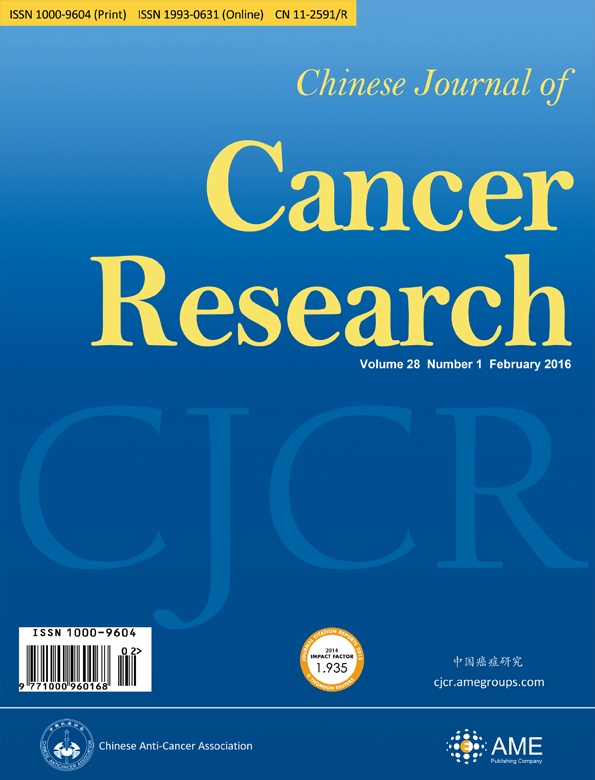在免疫肿瘤学治疗中诱导免疫原性细胞死亡
IF 7
2区 医学
Q1 ONCOLOGY
引用次数: 5
摘要
免疫疗法已经彻底改变了癌症治疗,并显著改善了多种类型肿瘤的患者预后。然而,大多数患者无法从这种疗法中受益,这主要是由于癌症细胞(CC)固有的低免疫原性,这使他们能够逃避身体免疫细胞的识别。免疫原性细胞死亡(ICD)是一种受调节的细胞死亡,参与肿瘤微环境(TME)中死亡的CC和免疫细胞之间的复杂对话,最终引发损伤相关分子模式(DAMP)信号以激活肿瘤特异性免疫。ICD诱导物介导CC的死亡,并提高抗原性和佐剂性。同时,他们以“冷-暖-热”的免疫状态重新编程TME,最终扩增和维持树突细胞和T细胞依赖的先天感知以及抗肿瘤免疫反应。在这篇综述中,我们讨论了如何基于在不同应激条件下进化的CC的生物学特性来刺激ICD。此外,我们强调了这种动态相互作用如何有助于启动肿瘤免疫原性,从而增强抗癌免疫反应。我们相信,深入了解这些ICD过程将为评估其在癌症免疫疗法中的重要作用提供一个框架。本文章由计算机程序翻译,如有差异,请以英文原文为准。
Inducing immunogenic cell death in immuno-oncological therapies
Immunotherapy has revolutionized cancer treatment and substantially improved patient outcomes with respect to multiple types of tumors. However, most patients cannot benefit from such therapies, mainly due to the intrinsic low immunogenicity of cancer cells (CCs) that allows them to escape recognition by immune cells of the body. Immunogenic cell death (ICD), which is a form of regulated cell death, engages in a complex dialogue between dying CCs and immune cells in the tumor microenvironment (TME), ultimately evoking the damage-associated molecular pattern (DAMP) signals to activate tumor-specific immunity. The ICD inducers mediate the death of CCs and improve both antigenicity and adjuvanticity. At the same time, they reprogram TME with a “cold-warm-hot” immune status, ultimately amplifying and sustaining dendritic cell- and T cell-dependent innate sensing as well as the antitumor immune responses. In this review, we discuss how to stimulate ICD based upon the biological properties of CCs that have evolved under diverse stress conditions. Additionally, we highlight how this dynamic interaction contributes to priming tumor immunogenicity, thereby boosting anticancer immune responses. We believe that a deep understanding of these ICD processes will provide a framework for evaluating its vital role in cancer immunotherapy.
求助全文
通过发布文献求助,成功后即可免费获取论文全文。
去求助
来源期刊
自引率
9.80%
发文量
1726
审稿时长
4.5 months
期刊介绍:
Chinese Journal of Cancer Research (CJCR; Print ISSN: 1000-9604; Online ISSN:1993-0631) is published by AME Publishing Company in association with Chinese Anti-Cancer Association.It was launched in March 1995 as a quarterly publication and is now published bi-monthly since February 2013.
CJCR is published bi-monthly in English, and is an international journal devoted to the life sciences and medical sciences. It publishes peer-reviewed original articles of basic investigations and clinical observations, reviews and brief communications providing a forum for the recent experimental and clinical advances in cancer research. This journal is indexed in Science Citation Index Expanded (SCIE), PubMed/PubMed Central (PMC), Scopus, SciSearch, Chemistry Abstracts (CA), the Excerpta Medica/EMBASE, Chinainfo, CNKI, CSCI, etc.

 求助内容:
求助内容: 应助结果提醒方式:
应助结果提醒方式:


